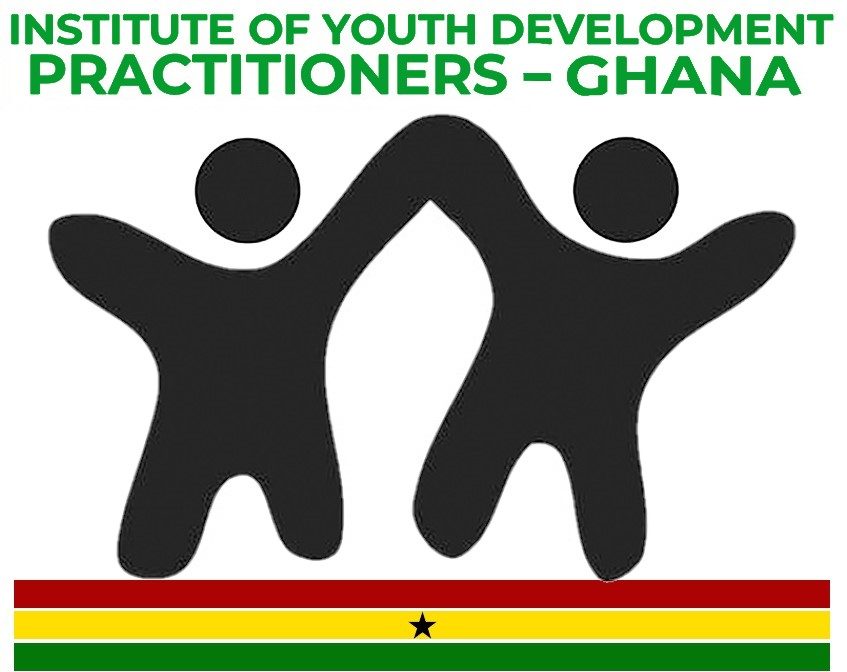Frequently Asked Questions
What is IYDPG?
IYDPG stands for the Institute of Youth Development Practitioners – Ghana. It is a professional body committed to promoting youth development practices in Ghana.
What is the main aim of IYDPG?
The Institute aims to bring together youth development practitioners and organizations to professionalize youth development work, set standards, and build capacity through collaboration and knowledge sharing.
What are the core objectives of IYDPG?
The main objective of the Institute is to professionalized youth development work, promote excellence, protect, and safeguard the rights, dignity, and welfare of youth development practitioners in Ghana. With the specific objectives as follows;
- To professionalized youth development work in Ghana
- To provide capacity-building programs and technical advice for youth development practitioners.
- To advocate alongside unions for improved industrial relations outcomes for member and young people.
- To facilitate and guide the activities of youth development practitioners in Ghana
- To conduct research and disseminate findings on youth development issues, best practices, and innovative approaches to promote evidence-based practice.
- To design, develop, implement and advocate for policies and programs that support the well-being and empowerment of young people in Ghana.
- To foster collaboration and networking among youth development practitioners, organizations, and stakeholders.
- Certificate members as certified youth development professionals in affiliation with accredited institutions both local and international.
- To organize an annual award for youth workers and young people by instituting Youth Workers Achievers’ (YoWA) Awards.
Who can become a member of IYDPG?
- The IYDPG welcomes a wide range of individuals and institutions involved in youth development:
- Youth Development Practitioners: Social workers, counselors, NGOs, CSOs, master-craft persons, and community development officers.
- Youth-Led Organizations & Networks: Youth-focused groups promoting development, advocacy, and empowerment.
- Government Agencies: Ministries, departments, and agencies responsible for youth welfare and community development.
- Interested Individuals: Anyone passionate about youth development.
What are the membership categories available?
Membership Categories
We offer five membership categories, each represented by a distinct color and benefits:
Student Member (Bronze – Reddish Brown):
For students enrolled in youth-related courses. Student chapters may be formed in tertiary institutions.
Honorary Member (Platinum – White):
Awarded to individuals with outstanding contributions to youth development.
Full Member (Diamond – Icy Blue):
For professionals with:
A degree or diploma in a relevant field.
At least 2 years of experience in youth work.
Completion of approved youth development modules.
Institutional Member (Gold – Yellow):
For organizations, networks, and federations (formal or informal) working with youth.
Associate Member (Silver – Grey):
For individuals interested in youth development but not yet qualified for full membership.
How can one apply for membership?
Applicants can submit their applications for consideration using our online registration form.
What benefits are available for members?
Membership Benefits
As a member, you’ll enjoy:
Certification eligibility as a recognized youth development practitioner.
Access to professional development through training and workshops.
Opportunities to network with other professionals and organizations.
Access to exclusive resources including research, publications, and best practices.
Advocacy support on youth-related issues.
Is there a membership fee?
Yes, all members are required to pay a registration fee and annual dues as determined by the National Executive Council.
What types of programmes does IYDPG implement?
IYDPG organizes capacity-building workshops, conferences, research dissemination events, advocacy campaigns, and collaborative development initiatives targeting youth practitioners and institutions.
About Us
The Institute of Youth Development Practitioners – Ghana (IYDPG) is a professional, non-governmental, non-partisan, and non-profit organization committed to the promotion of excellence, ethics, and professionalism in youth development practice across Ghana.
Quick Links
Have any Questions?
Our Address
Upper West Regional Library,
Wa Upper West Region
Contact Info
info@iydpg.org
+233-2077-70131
